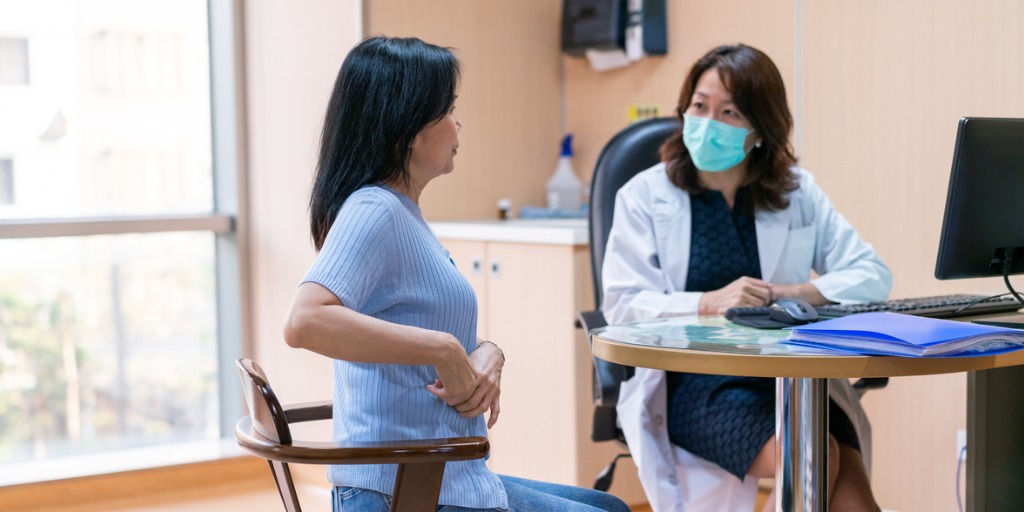The latest ulcerative colitis treatment guidelines

Ulcerative colitis (UC) is an inflammatory bowel disease (IBD) that is generally restricted to the colon, causing long-lasting inflammation and ulcers (sores) in your digestive tract.
UC symptoms can be unpredictable, making even routine activities tough to plan for. Common UC symptoms include:
- blood in the stool with mucus
- frequent diarrhea
- loss of appetite
- abdominal pain
- urgent bowel movements
- weight loss
- tenesmus, or a strong urge to use the bathroom without necessarily having a bowel movement
The good news is that several categories of drugs and surgeries may be effective in treating UC. We take a look at some of the latest UC treatment guidelines.
Diagnosis
Routine laboratory tests (blood tests and stool samples), endoscopic evaluation (colonoscopy, upper endoscopy, and sigmoidoscopy), and imaging studies (x-rays, CT scans, and MRIs) can be helpful in establishing a diagnosis. Endoscopies utilize a very small camera on a tube to help doctors see inside your digestive system, and according to guidelines published by the American College of Gastroenterology, a diagnosis of UC requires a lower gastrointestinal endoscopic examination.
If you’re experiencing symptoms of UC, it’s best to see a doctor so that they can properly diagnose you, ruling out other forms of IBD, like Crohn’s disease, that can present similar symptoms.
Treatment options and guidelines
There is no known cure for UC, but when flare ups occur, a combination of treatment options can help you stay in control of your disease.
The primary goal in treating UC is to help patients regulate their immune system more effectively. The severity of UC symptoms can be different for everyone, which is why treatment plans will vary. Treatment for UC includes the use of medication, alterations in diet and nutrition, and sometimes surgical procedures to repair or remove affected portions of your GI tract.
Medications
Medication for UC can suppress the inflammation of the colon and allow for tissues to heal. Medication can also be used to decrease the frequency of symptom flare-ups. Combining therapies can increase the effectiveness of UC treatment, but there may also be an increased risk of additional side effects and toxicity. It’s critical to discuss all options with your healthcare provider, who can help identify the treatment option that is most effective for your individual health care needs. Below are the most common medications prescribed to treat UC:
5-aminosalicylic acid (5-ASA): This drug is often the first step in the treatment of UC. Examples of this type of medication include sulfasalazine (Azulfidine), mesalamine (Asacol HD, Delzicol, others), balsalazide (Colazal), and olsalazine (Dipentum). The kind of 5-ASA you will take (and in what form) depends on the area of your colon that's impacted.
Corticosteroids: Due to side effects from long-term use, these drugs are generally only reserved for moderate-to-severe UC cases. Examples of corticosteroids include prednisone and budesonide (Uceris).
Immunomodulator drugs: These drugs reduce inflammation by suppressing the immune system response that starts the process of inflammation. Examples include:
- Azathioprine (Azasan, Imuran) and mercaptopurine (Purinethol, Purixan) require that you follow up closely with your doctor and have your blood checked regularly to look for side effects, including effects on the liver.
- Cyclosporine (Gengraf, Neoral, Sandimmune) may be used for people who haven't responded well to other medications. It is not for long-term use.
- Tofacitinib (Xeljanz) has recently been approved for treatment of conditions such as UC, rheumatoid arthritis, or psoriatic arthritis.
Biologics: Infliximab (Remicade), adalimumab (Humira) and golimumab (Simponi) work by neutralizing a protein produced by your immune system. Vedolizumab (Entyvio) is a gut-specific medication that works by blocking inflammatory cells from getting to the site of inflammation.
Other medications may be used to manage specific symptoms of UC, but only after consulting with your team of medical professionals.
Diet and nutrition
Particular foods can trigger UC symptoms and flare-ups, so it’s crucial to maintain a healthy diet that promotes healing.
- Talk to a dietitian. If you begin to lose weight or your appetite diet has become very limited, talk to a registered dietitian.
- Limit dairy products. Many people with IBD find that problems such as diarrhea, abdominal pain and gas improve by limiting or eliminating dairy products.
- Limit fiber. If you have IBD, high-fiber foods may make your symptoms worse. If raw fruits and vegetables bother you, try steaming, baking, or stewing them.
- Avoid foods that worsen symptoms. Spicy foods, alcohol, and caffeine may trigger symptoms.
- Eat small meals. You may find you feel better eating five or six small meals a day rather than two or three larger ones.
- Drink plenty of liquids. Water is best. Alcohol and caffeine-heavy drinks stimulate your intestines and can make diarrhea worse. Carbonated drinks frequently produce gas.
Surgery
In some patients living with UC, medication management is not completely successful. If this is the case, surgery may be considered. According to the Crohn’s and Colitis Foundation, depending on a number of factors, including the extent of the disease and the patient's age and overall health, one of two surgical approaches may be recommended:
- Removal of the entire colon and rectum with the creation of an ileostomy or external stoma (an opening on the abdomen through which wastes are emptied into a pouch, which is attached to the skin with adhesive).
- Removal of the colon and avoiding an ileostomy. By creating an internal pouch from the small bowel and attaching it to the anal sphincter muscle, the surgeon can preserve bowel integrity and eliminate the need for the patient to wear an ostomy pouch.
Be sure to review the risks and benefits of surgery with your doctors, and weigh the options with your family and loved ones.
If your UC symptoms keep recurring, it can be a sign that your treatment plan isn’t working as well as it could. Interested in participating in research? Volunteers are needed for IBD studies to help push treatments and interventions forward.
Topics: For Patients

